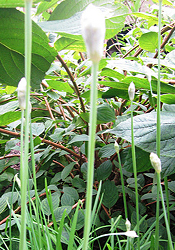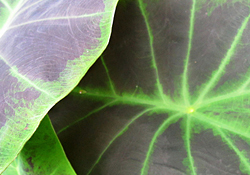Fall Gardening Tips From Bryce Lane
Fall is actually the best time of year to plant new plants. So says Bryce Lane, host of UNC TV’s “In the Garden” and alumni distinguished undergraduate professor in the Department of Horticultural Science. Trees, shrubs, herbaceous perennials — essentially anything that sits in the landscape for a long time – prosper because the root systems are stimulated by the warm soil, he says. Fall planting gives you extra months for root establishment. Trees and herbaceous perennials are also on sale at this time of year, usually at half price compared to summer. Lane sits down with the Bulletin to offer his gardening tips for the fall.
Plant Trees
For rookie and even seasoned gardeners, planting a tree in the fall feels scary — within months, all leaves disappear making the tree look dormant. But in fact, fall is an excellent time for planting trees. Don’t forget to prepare your soil by turning and loosening it. This will help prepare everything you plant afterwards. if possible, add organic amendments including compost, soil conditioner, and manure.

Plant Herbaceous Perennials
The same goes for planting flowering plants in the fall: the root system will still prosper. So, for example, if you plant a blackeyed Susan in the fall, even though the above-ground portion dies back, its roots will continue growing through spring.
Plant Your Winter Vegetables
Spinach, Swiss chard, kale and collards can all be planted in the fall for harvest through the winter. Transplants are best but seeds will grow nicely because the soil is still quite warm.
Plant Your Winter Flowers
Ornamental kale, ornamental Swiss chard and pansies can all be planted in the fall. North Carolina is a great place to plant pansies and snapdragons, giving you lots of flower color throughout the winter.
Plant Your Spring Flowering Bulbs
If you plant tulips and daffodil bulbs in late fall, you will have flowers by spring. Add organic matter to the soil before planting, cow manure or compost, and a bulb fertilizer.

Protect Tender Plants
Cover any plants that can be hurt by temperatures below 32 degrees. You can mulch the plants with 6 inches of pine straw to provide an insulation blanket over the root system. For exotic species such as elephant ears you can cut the leaves down to ground level to protect them.
Cultivate Your Grass
Fall is a great time to re-seed your grass. Add organic matter and keep it watered. Fertilize your grass before Thanksgiving.
Divide Your Herbaceous Perennials
Herbaceous perennials multiply readily in North Carolina gardens so you must separate them so they aren’t crowded. One daylily planted three years ago could become a dozen in that same spot. Ferns also divide easily. I replant perennials elsewhere or share with a gardening friend. This very Southern tradition is called “pass along plants.” I love to do this throughout the fall.
- Categories:


